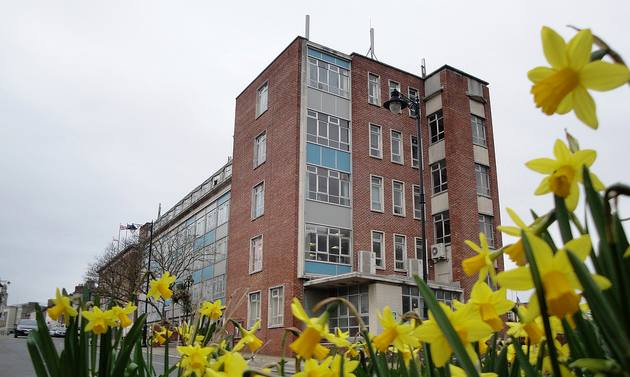This in from Labour county councillor, Geoff Lumley in his own words. Ed
As we draw ever nearer to the Isle of Wight Council elections in May 2013 it may just be my perception, but On the Wight seems to be even more full than usual of siren voices telling us how wonderful it would be to have an ‘Independent’-controlled County Hall. I want to warn, naturally, against that happening by pointing out the consequences.
Can I first say that I have no problem with people standing for the Council as ‘independents’.
Some truly independent councillors
There has been a long line of truly independent councillors over my many years of local political activity who have done much for their wards without seeking to run their local authority, realizing as they did that the two are entirely different.
But also some entirely disreputable ‘independents’
However, there have also been a history of entirely disreputable ‘independents’ either running from failed ambitions in a political party (quite a few here on the Island), or running to a political party they claimed to be opposing when elected, the latest being Wayne Whittle to the Tories.
Two-fold concerns
What bothers me about a majority of independents being elected to perhaps control County Hall is two-fold:
- Firstly I ask, how will the Council be run if they all act truly independently and only represent the exclusive views of what they judge are the majority views of their electorate? Will there really be a commonality of views?
- Secondly, if they continue to act as a ‘Group’ – as the independents currently do – then how ‘independent’ will they really be? Will they not in effect rapidly become a more disciplined organization focused on delivering a joint agenda? Just like a political group….. just like a political party.
County Hall Independent group
Certainly the way the current County Hall Independent group of nine operate puts me very much in mind of a cohesive political group, with Ian Stephens (a decent bloke) very much their shadow leader seemingly preparing for power, with Cllrs Churchman, Welsford and Bacon (all decent people) his shadow cabinet!
Political groupings can often be described as a negative influence on local government. Party whips are often applied and too little freedom is given for councillors to represent the views of their local residents when this conflicts with the position of the party group. Personal relations between groups often appear unnecessarily confrontational and ill-tempered.
Party groups remain the engine of local government
However, despite their weaknesses, which can easily be overcome, the party groups remain the engine of local government.
Ruling party groups can define a set of values and an administrative or political programme (a manifesto) and steer it through in a way Councils run by independents would be unable to match, unless they start to mirror the political groups.
Shared set of values
With all the restrictions and interference from central government, ruling groups still have the opportunity to shape the future of their local area. No matter how much we may disapprove of the current Tory ruling group at County Hall, there is no doubt it has in the main a shared set of values.
Ruling groups provide Council officers with a framework to ensure the coherence and strength to enable tough decisions.
And their clear and shared political banner means they can easily be rewarded at the ballot box for their successes – and punished for their failings. See the Lib Dems here back in 2005 and hopefully the Tories in 2013.
Could we say the same of a ruling independent group? I doubt it very much. It would be like nailing jelly to the wall………
Geoff Lumley, Labour
Image: Simon Haytack under CC BY 2.0




